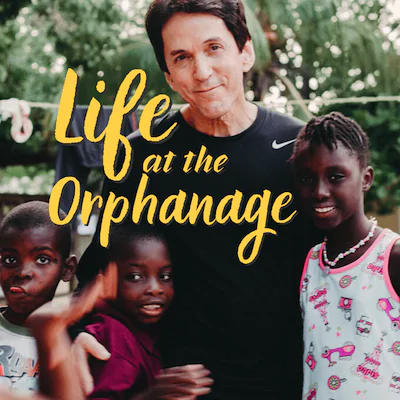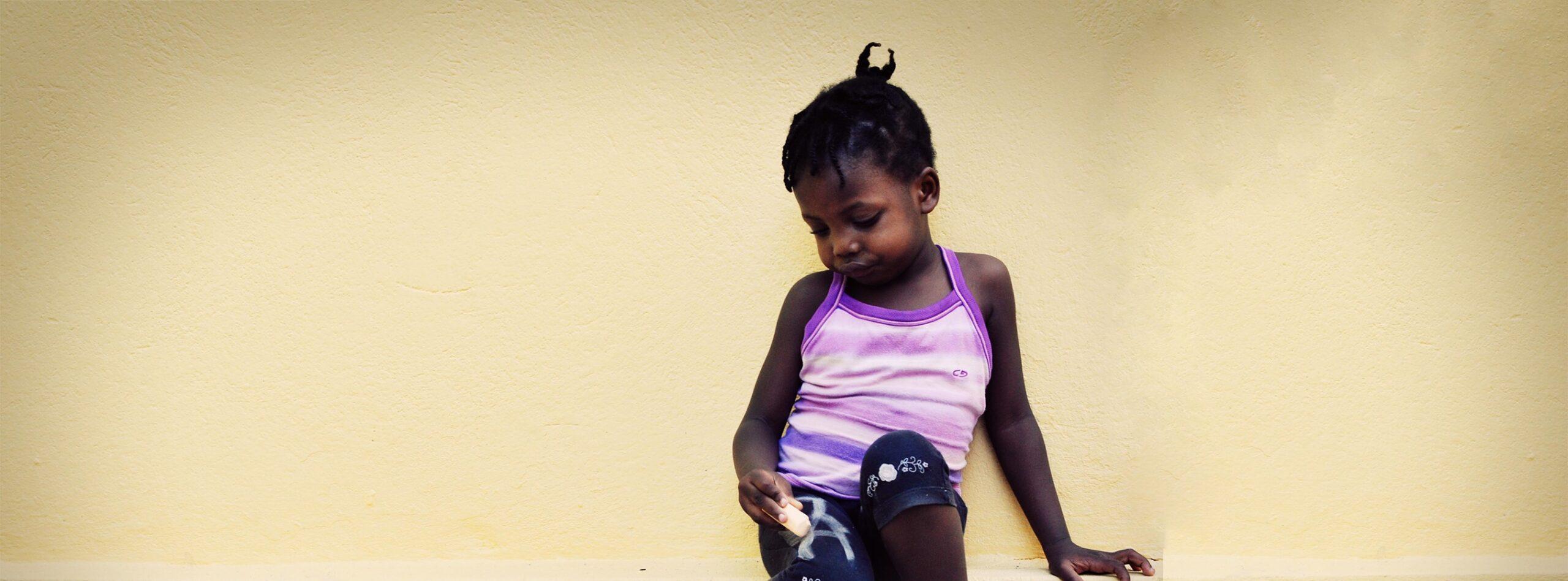PORT-AU-PRINCE — Every night, at the end of devotions, we sing the old Nat King Cole song “L-O-V-E,” and we end it with a chant:
“1-2-3…Goodnight, Chika!”
It is meant to remind us — all of us, the kids, the nannies, the staff, my wife and myself — that Chika is never gone. But, of course, she is gone, at least in one sense. She isn’t running around the yard, wagging a finger at the other kids, telling the older boys who can use a soccer ball or balloon, pulling someone into the gazebo to dance, or singing with that booming Ethel Mermanesque voice that you could rattled through the hard concrete walls of our Haitian orphanage.
It’s been five years since Chika died. Five years today. It’s sunny and warm here in Haiti and it was sunny that morning as well. Chika had performed a miracle the day before. Her breathing had slowed to an almost imperceptible level, and her heartbeats, measured with a stethoscope that my wife and I shared, had dropped to five per minute. The hospice nurses had told us this was the end, the moment we had to say goodbye to our precious child.
But there was a sound. A small, soft groan. We were flanked around Chika in our bed, the way she always liked it, a game she referred to as “cozy, fluffy bed camp” where the idea was to get as close to one another under the covers as you could.
So there we were, little Chika between us, choking back our tears, and I asked the hospice nurses what that small noise meant.
“Those are just the sounds children make when they are about to go,” we were told.
But I didn’t believe it. Neither did Janine. People had been wrong about Chika before. They were wrong when, after discovering she had a DIPG brain tumor, they said she wouldn’t live more than 4-5 months. They were wrong when they said that a second round of radiation wouldn’t help her. People had been wrong about Chika and her survival abilities so many times, that we doubted anything the first time we heard it.
“No,” I told the nurses that morning, “she’s trying to fight. She’s trying to stay with us.”
My wife agreed. And so we lifted her and I began pounding on her back with a small rubber device, and we suctioned her with a nose tube, and in moments, her respiration improved and her heart rate rose to 35 beats a minutes. The hospice nurses were stunned. She lived another day, and gave everyone who loved her a chance to come by and say farewell.
“In all my time doing this, I’ve never seen anything like that,” one nurse said.
>
A tiny miracle
Of course, most of us had never seen anything like Chika. She survived the terrible earthquake of 2010 when she was three days old. Her single-room, cinder block house collapsed around her, yet she and her mother lived. She slept in a bed of sugar cane leaves that night, out in the field, under the stars. That was her bed for weeks.
Two years and half years later she endured another tragedy when her mother died giving birth to her baby brother. Chika was taken away that day by her godmother, who brought her to us at the orphanage.
For several years she was our youngest, loudest and bossiest child — and everyone loved her. Then the drooping face started, and the neurologist, and the MRI, and the diagnosis, and the trip to America that was supposed to be for a surgery that cured her and wound up as a one-way ticket into our lives.
Chika lived just shy of two years after her diagnosis. That’s incredibly long for DIPG patients. The disease usually strikes kids between 4 and 9, and is nearly always fatal. During that stretch with Chika, we got to know many other families enduring this horror. Some remain friends to this day. And some amazing work is being done to try and wipe out DIPG, particularly by our friends with Chadtough Defeat DIPG Foundation.
Haiti is home
But while we don’t miss those days of treatments, steroids, radiation, plane trips to New York and Germany, and the endless, maddening, race to find a cure, we sure miss Chika. We miss her every day in our home in America, which she filled up with singing and laughing and dolls strewn all over the floor.
But here in Haiti, we miss her differently. We miss her being a part of the group. She loved being our de facto daughter in America, loved the fuss we made over her and her alone, the trips for ice cream, the visits to an arcade where she collected tickets that you traded in for little prizes, the snuggling in bed between my wife and me while we watched a Peter Pan movie.
But Haiti was never far from her mind. She would always ask when she was going back. She would always ask if we could FaceTime devotions, so she could see the kids praying. She told everyone in the U.S. she had “five houses,” and she rattled off all the places she had slept for more than a night; yet she always added the qualifier “but my HOME is Haiti.”
And it was. I remember the first time we brought her back after a round of treatments. She was bloated up from the steroids and didn’t quite look like the Chika who had left months earlier. But she was bouncy and happy and could not wait to get there.
When we pulled into the driveway, you could hear the chants starting. “Chika! Chika! Chika!” The kids had all gathered awaiting her arrival, and when she emerged from the van, it was the loudest roar I’ve ever heard from our group. They grabbed at her and bounced her from shoulder to shoulder, and when they finally put her down, she ripped off her little sweater — it was Haiti, after all, and it was hot — and she ran to the swings and she jumped on.
Other kids jumped on with her. And they flew back and forth, Chika smiling like this was all she ever wanted, her legs extending to heaven with each ascent.
I often picture her on that swing, going higher and higher, and finally just lifting out of the banana seat and soaring gently into the stars. That’s why we look to the sky every night when we finish singing to her. Good night, Chika. There’s not a day that you are not with us.



 Join a community of monthly donors
Join a community of monthly donors
0 Comments